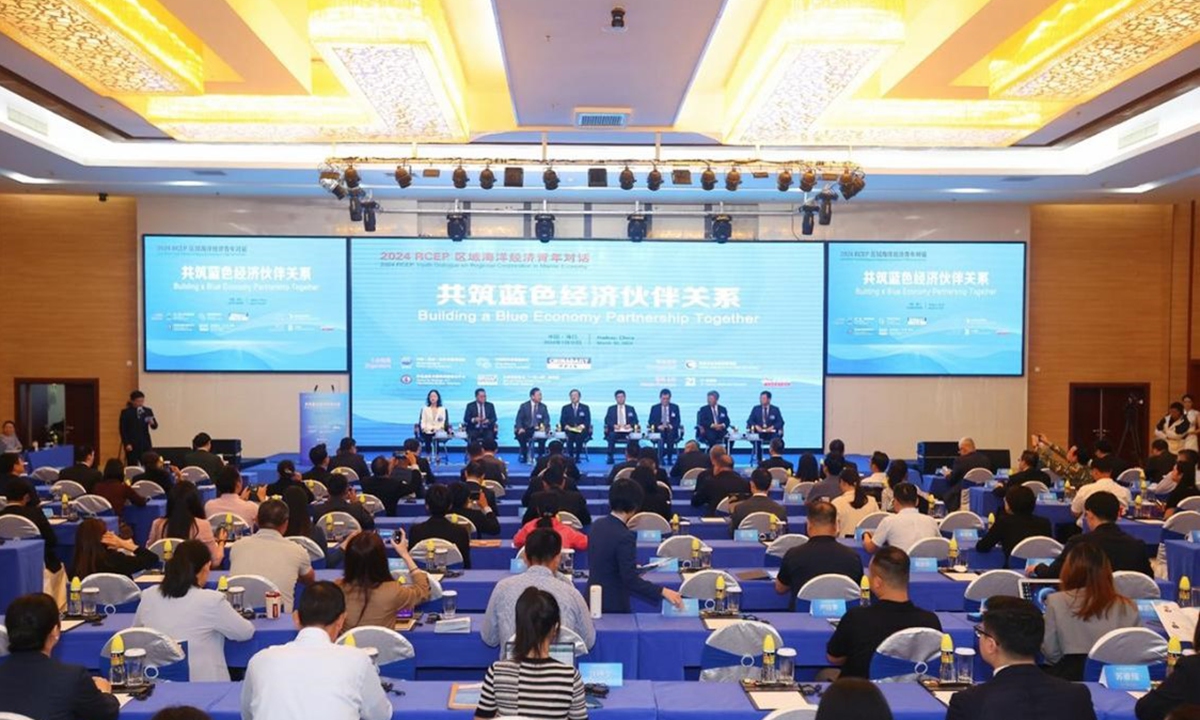kids ride on cars sale exporter

The forum, “Building a Blue Economy Partnership Together: 2024 RCEP Youth Dialogue on Regional Cooperation in Marine Economy,” is held in Haikou, South China’s Hainan Province, on March 30, 2024. Photo: China Institute for Reform and Development (CIRD)
Participants called for the enhancement of China-ASEAN blue economy integration on Saturday at a forum in Haikou, a city in Hainan, South China. Accelerating the formation of China-ASEAN blue economy-themed free trade networks and large integrated markets has become a major task in their comprehensive strategic cooperation, said Chi Fulin, president of China Institute for Reform and Development (CIRD).From an overall perspective of the Asia-Pacific region, blue economy cooperation between China and ASEAN is also very important. There is a consensus in the Asia-Pacific region on the need to pay increased attention to the significant impact of maritime peace and security on the global economy, actively respond to the significant impact of maritime cooperation on economic cooperation in the Asia-Pacific region, and actively support the construction of a blue economy partnership with sustainable development as the goal, Liu Zhenmin, China's special envoy for climate change, said on the forum.
The forum, “Building a Blue Economy Partnership Together: 2024 RCEP Youth Dialogue on Regional Cooperation in Marine Economy," was held in Haikou on Saturday by CIRD and four other institutions and media. Representatives from think tanks and experts from 14 countries, including Singapore, Malaysia, Indonesia, Thailand, Vietnam, the Philippines, Cambodia, Japan, Australia, and Pakistan, as well as guests from relevant domestic ministries, universities, and research institutions, totaling more than 200 people, participated in this dialogue. This youth dialogue lasted for one day, bringing together various parties, especially young people, to build a partnership for the blue economy.
The concept of the blue economy was first defined at the 2012 United Nations Conference on Sustainable Development and has since been widely applied to research and policy in the field of marine economics. China is the world's largest exporter of fish and fishery products. It’s also the largest shipbuilding nation and is a country experiencing rapid growth in the marine economy. The marine economy is also an important pillar of economic growth in ASEAN countries, but most countries' marine economies are still in the early stages of development. Advancing the integration of the China-ASEAN blue economy has become a pragmatic and special move in building their blue economy partnership, Chi stated in his speech on promoting the integration of the China-ASEAN blue economy.
China and ASEAN need to jointly create a "blue engine" for regional economic growth, maintain the security and stability of their industrial and supply chains, and join hands to make up for weaknesses in regional economic integration, Chi said. He noted that if cooperation barriers can be broken down with the goal of integrating the blue economy to form free trade networks, it will release important dividends of regional economic growth and inject “blue momentum” into regional economic integration.
In his opinion, the major tasks for pushing forward the integration of the China-ASEAN blue economy are promoting the integration of China-ASEAN marine industries, pushing forward the integrated cooperative development of offshore renewable energy resources, and pushing forward the integration of high-tech marine industries with marine biomedicine as a priority. He also focused on exploring Hainan’s role in the integration of the China-ASEAN blue economy.
The China-ASEAN blue economy partnership is one of the important goals of the "ASEAN-China Strategic Partnership Vision 2030." “The blue economy is an emerging multi-sector economic area that warrants multilateral collaboration to better manage the many aspects of oceanic sustainability,” Ong Tee Keat, president of the Belt and Road Initiative Caucus for the Asia Pacific, stated in his speech. It is conducive to enhancing the vitality and resilience of sustainable development. The huge economic potential of sea resources is conducive to enhancing inclusiveness and sustainably strengthening regional economic integration.
Yose Rizal Darimu, executive director of the Center for Strategic and International Studies of Indonesia, pointed out that ASEAN needs to cooperate with China, especially in promoting the development of blue economy within the framework of the Regional Comprehensive Economic Partnership (RCEP). He suggested opening up market access, achieving service and equipment sharing, strengthening regulatory cooperation, regulating marine activities, enhancing economic and technical cooperation, and capacity building.
Promoting further development of the ocean economy is of paramount importance. As Ong Tee Keat pointed out, China and ASEAN need to deepen cooperation and jointly address the challenges in capacity building, skill enhancement, infrastructure investment, and achieving sustainable development in the blue economy.
本文地址:http://www.fzgmy.com/html/467b599527.html
版权声明
本文仅代表作者观点,不代表本站立场。
本文系作者授权发表,未经许可,不得转载。